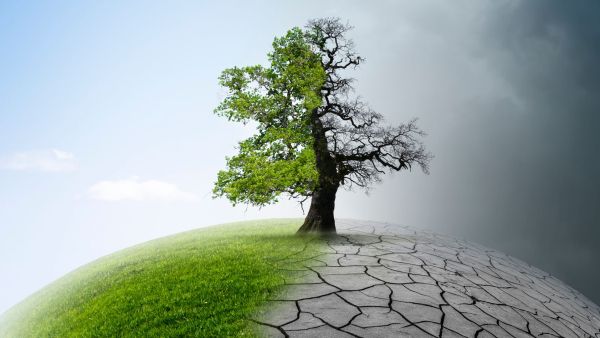The European Union must change gear to accelerate its transition to a sustainable society, by placing well-being for everyone at the heart of its project for the next parliamentary term. So far, the EU has not grasped the full nature of the crisis, which is both social and ecological. Climate change, pollution or the depletion of natural resources cannot only be addressed by 'greening the economy'. The other two dynamics of sustainable development – inclusive development and social-ecological progress are equally important. Policies of the future must be built on the three dynamics together, if we are to overcome the crises that undermine our democracies and Europe. That is why S&Ds have launched a comprehensive and radical new agenda for Europe that should guide its action after the 2019 European elections.
Ahead of the European Commission’s proposals on a long-term strategy on climate and energy to be adopted tomorrow, and ahead of its reflection document on sustainable development expected in January, the Socialists and Democrats today presented a report with 110 radical proposals for change. It is the outcome of an Independent Commission, which over six months gathered 30 politicians and experts, led by former Prime Minister of Denmark, Poul Nyrup Rasmussen, and the former economics and labour minister from Greece, Louka Katseli.
The report's proposals cover the need to re-empower people in our weakened democracies, to re-shape capitalism, to re-build social justice, to ensure real social-ecological progress and to radically change the way European economic, social and environmental policies are framed.
S&D president Udo Bullmann said:
"Our system is in danger of breaking and people fear that they are losing control. Our societies need to adapt to globalisation, climate change, the digital revolution all at the same time – and the list goes on. To make these transformations work, and to ensure that they lead to something good, we need a radically new approach: One that understands that the digital revolution can lead to less, not more, social and territorial inequalities. One that shows that you can advance the greening of the economy and improve the quality of jobs at the same time. One that takes into account that only a just society will be a liberal and democratic society, in which nationalists and extremists have no chance. With our proposals put forward in the report of the Independent Commission for Sustainable Equality, our Group leads the way towards a better Europe that overcomes inequalities and social frictions."
S&D vice-president for sustainability, Kathleen Van Brempt, said:
“We realised that the social crisis is being harvested by nationalists and populists, which might eventually lead to heavy protests and serious disruptions in our societies. It was also clear to us that the social crisis is closely connected with the ecological crisis. The ecological catastrophe we are facing is first and foremost a social catastrophe. The most vulnerable (those living in poverty, the elderly, children…) are the first victims, but in the end, every human being will be affected. Furthermore, just ‘greening the economy’ will not solve the growing inequalities. Today, it is those living in poverty and the precariat who are paying the bill of the ecological crisis. This must stop.”
S&D vice-president for agriculture and regional policy, Eric Andrieu, said:
“This work is a paving stone against the neoliberal tide that for 40 years has favoured the hyper-concentration of wealth to the benefit of a minority and to the detriment of the greatest number. Faced with the major challenges before us, the Group of the Party of European Socialists and Democrats has decided to thoroughly review its political doctrine by placing it firmly under the badge of sustainable development. We must stop looking at the European Union solely from an accounting perspective. In the face of today's hyper-individualism, we must recreate meaning and propose alternatives to our fellow citizens. Like our agricultural model, Europe needs to be given new colours and long-term prospects."
Mercedes Bresso MEP, S&D vice-president for economic and social issues, said:
“In the Group we already changed the way we work internally to make sure that we stop thinking in silos. Everything is interconnected and this is how we already approached the next financial perspectives. Now we present our political vision as a triangle with three sides equally important: the ecological, the social and the economic one. We want to accomplish with a bottom-up approach, bringing everyone in. Let us not forget that half of EU citizens live far from urban areas, and they are the ones directly involved in preserving the environment and our natural resources. In any policy we engage, people should always go first and we must involve them.”
You can read the full report here, and see the list of independent experts here.










